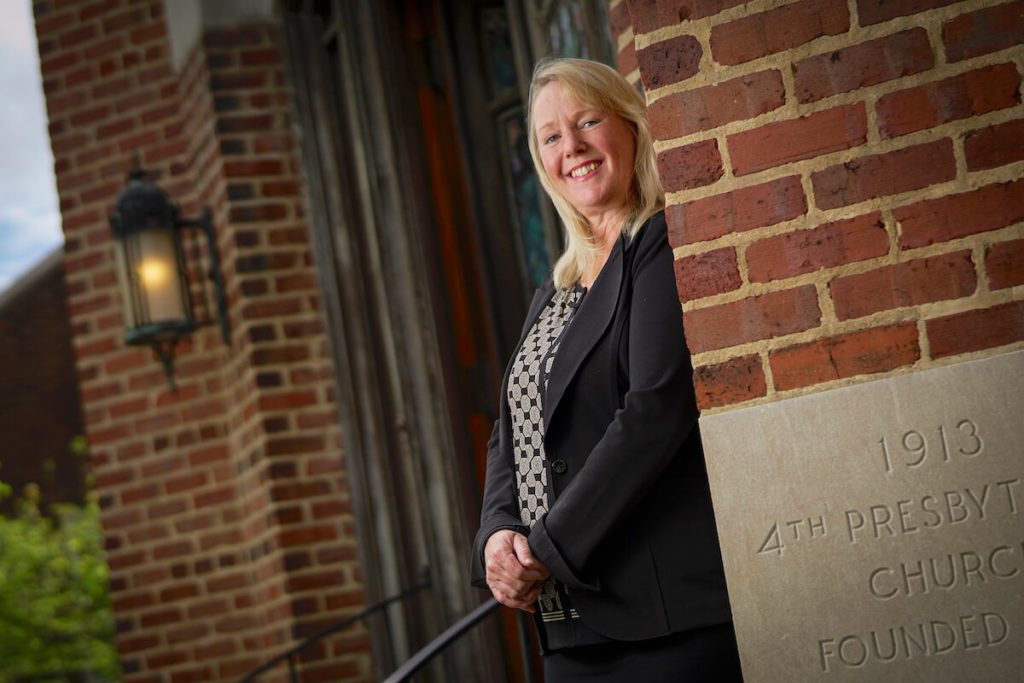After three grueling years of law school studies, Liz Peterson was planning a graduation party with an extensive list of guests eager to help her celebrate her accomplishment.
Her 89-year-old mother would have been there with her partner. Her two teenage children and husband would have been cheering her on. She was also expecting most of her church congregation to be celebrating with her, because it’s not every day that they get to congratulate a pastor for becoming a lawyer.
“They would have taken up a few rows at graduation, I’m sure,” Peterson said. “The party at my house afterward would have looked like a wedding reception with all of our close friends and family.”
While the COVID-19 coronavirus pandemic has disrupted the traditional commencement plans and parties for the 119 University of Tennessee College of Law 2020 graduates, their accomplishments are worth celebrating.
Throughout law school, Peterson has been a full-time wife, mother and pastor of Fourth United Presbyterian Church in Knoxville. Her life’s pursuits have been primarily about ministry. She earned a Master of Divinity degree at Columbia Theological Seminary in Decatur, Georgia, where she simultaneously taught Hebrew and Greek language classes. She later earned a Doctor of Ministry at Louisville Seminary in Kentucky.
Peterson has always had a heart to serve, guide and minister to those in need, she said, but when she became the pastor of a primarily African-American church congregation in 2011, her focus began shifting.
“Racism was a word I didn’t really understand until I began serving this congregation,” she said. “The members wouldn’t make trouble, but they would get in trouble with the law because of their race. They faced injustice that would never touch a white person.”
Peterson grew increasingly frustrated hearing stories about parishioners who were jailed simply because “they were in the wrong place at the wrong time,” she said. “It was a huge eye opener.”
Peterson’s husband, an assistant district public defender for the state of Tennessee, was the first to suggest that she might be a better pastor if she also became a lawyer. But Peterson was hesitant.
“Women in my family didn’t go to law school,” she said. “So I didn’t believe I could do it and do it well. It just wasn’t part of my language.”
While legal and ministeral vocations might not seem to overlap, Peterson found that years of preaching and preparing sermons left her with skills that translated well into her study of the law. Her comfort speaking in front of people helped her excel in moot court and mock trial competitions. And her experience interpreting complex biblical passages to create compelling arguments in the pulpit informed her legal research and helped her present ideas in classroom discussions that others didn’t raise.
“Law school has made me a better preacher, and preaching helped me be a better law student,” she said.
Peterson isn’t clear about where she’ll head with her legal career after she graduates next month, but – perhaps not surprisingly – her interests lie in advocacy and criminal defense. Through her internships with a federal public defender and in the criminal court of appeals, she’s learned how consequential a strong legal defense can be.
“A criminal defense lawyer can work very hard and see someone get out of jail. What’s more satisfying than that,” she said. “Sometimes just 30 minutes of your focused time can change a person’s life for the better.”
Law Professor Wendy Bach, who taught Peterson in the College of Law Advocacy Clinic throughout the last year, said Peterson’s life experiences uniquely influenced her approach in working successfully with clients.
“Liz has this goal, in whatever the situation, that the outcome should be just,” Bach said. “She works back from there in a very ethical and intelligent way. It’s really a joy to watch her work as a lawyer.”
Peterson’s compassion, hard work, and general people skills set her apart, Bach said.
“Liz walks the walk and talks the talk, for sure,” Law Professor Ben Barton said. “She has a heart for this work, and she’s going to be an exceptional lawyer.”
